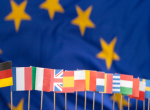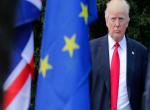President Sarkozy’s impending visit to India (December 4-6) should be seen in the larger perspective of India’s rise and the external environment that has facilitated this. India-France relations have strong foundations built over many decades. Until now, despite good political understanding based on mutual respect, equality, shared attachment to independent positions on international issues and recognition of reciprocal benefits of close engagement in diverse fields, the full potential of the relationship has remained unachieved. India’s steady ascendance opens up new opportunities to forge qualitatively different ties with its partners. An upsurge in India-France relations should normally occur, catalyzed by mutual goodwill built over the years, of which an integral part is the intensity of high level exchanges with India as well as the robustness of French political support for a greater Indian global role that President Sarkozy has maintained under his watch.
India’s rise is part of the rise of Asia on which western attention is now rivetted for a better understanding of how it is altering established global political, economic and security equations. A rapidly growing India, with its huge market, its entrepreneurial skills, its human resources, the advances it has made in the knowledge economy, its fast rising outward investment etc, has now become important as an economic partner for major powers. China has a head start over us, but China’s economic strategy is now being widely attacked as a cause of the economic and financial imbalances that currently afflict the global economy. Wariness about China is growing because of its mercantilist policies, violation of intellectual property rights and absence of a well defined legal sysytem in the country. India, which in any case, has a geographic and demographic footprint in Asia next only to China, is receiving more attention despite its poorer infrastructure and greater entry problems for businesses. A general desire to see a better balance in Asia is playing in India’s favour.
China’s spectacular economic success has bolstered its political confidence, making it more self-assertive, backed by its expanding military capabilities. With the economically morose US embroiled in Iraq and Afghanistan, China’s rise is now seen as a threat by many. After its recent confrontation with Japan, claims about its peaceful rise seem less credible. India’s non-export dependent economic model and its exchange rate policies are not a source of distortions in global trade and financial flows. India’s pluralism and democracy give comfort to its partners who have therefore a much more benign view of its rise.
France has had some turbulence in its relations with China, having been at the receiving end of its bullying tactics, but because of the powerful allure of the Chinese market, it has a larger presence there than in India. The Chinese President was in France a few weeks ago and according to reports the visit produced substantial economic results, which is not surprising as the Chinese are adept at making political statements through economic deals. But France has been devoting increasing attention to India not only to secure an appropriate share for itself of the expanding Indian market, but also because of political understanding and increasing faith in India as a partner, even if the results are relatively slow to show.
Opportunities are opening up for India, but India has to exert itself to exploit them durably. We must not be carried away by all the heady talk of our inexorable rise, the size of our economy racing to second rank in the decades ahead, our vital contribution to global growth as the west battles recession, our demographic dividend -all this in the context of the West’s decline. It would be wise to remember that India’s rise is not solely on account of changed economic thinking and policies that have unleashed the dynamism of its entrepreneurial class, it is as much a result of globalisation led by the West featured by open markets, curbs on protectionist policies, flows of investment and technology, consultancy services, management expertise, educational opportunities etc. India’s continuing rise depends on maintaining cooperative and productive ties with its western partners. The West may be losing ground relatively with the emergence of new players, but the global game cannot be carried on without it. It would be disastrous for all if the West, unnerved by the challenge it faces, discards the economic principles it has long espoused and countries like India that are on the cusp of forging ahead decisively suddenly find themselves hitting against protectionist walls. All this points to the need for India to develop so-called win-win scenarios in dealing with our western partners.
If President Obama could make job creation for America the justification for his India visit, President Sarkozy should not be faulted if he too looks for tangible results resulting from his Indian foray, just as we look for “deliverables” when our own leaders make visits abroad. Having invested a lot of political capital in helping open civilian nuclear doors for India, the French would have hoped for closure on a commercial nuclear agreement on the supply of French reactors in time for the Sarkozy visit. Similarly, closure on the stretched out negotiations for the Mirage Upgrade contract would have been keenly hoped for. The Kaveri engine project for the LCA is another project of interest. On the short range surface to air missile(SR-SAM) project which involves co-development and production with Bharat Dynamics Limited(BDL), the French have been hoping for decisive progress. With the US in the fray, and Russia and Israel competing, the French are naturally keen to retain their share of India’s defence market, especially as the experience of our defence services of French supplied equipment has been very positive.
At one level, the Indian side is uncomfortable with pressure generated by high level political visits to artificially accelerate negotiations on complex defence deals or their processing by the governmental machinery. The inclination therefore is not to encourage the practice of signing defence deals during such visits. But then the question of timely decisions remains, as our procedures are very dilatory, without sufficient regard at times to the cost to the country of unwarranted delays in acquisitions and without those responsible for bureaucratic lethargy or ineptitude being held to account. What might emerge from the Sarkozy visit in terms of specific nuclear and defence agreements remains uncertain, though some positive announcements may come. In space it is not clear if new ground will be broken, though in this area France has impressive capabilities. With the US decision to ease export controls on transfer of high and dual use technologies to India, the potential for meaningful cooperation with France in this area can be usefully explored. Education is another thrust area of cooperation. Let us also remember that French support for India’s UNSC permanent membership- as well as that of others- has played some role in prodding the US to bend.
India has so far failed to deal with France from a longer term strategic perspective. It is time that a rising India did so, as part also of our relationship with a powerful pillar of the global order- Europe.
--------------------------------------------
Published in The Mail Today dated November 30, 2010









Post new comment